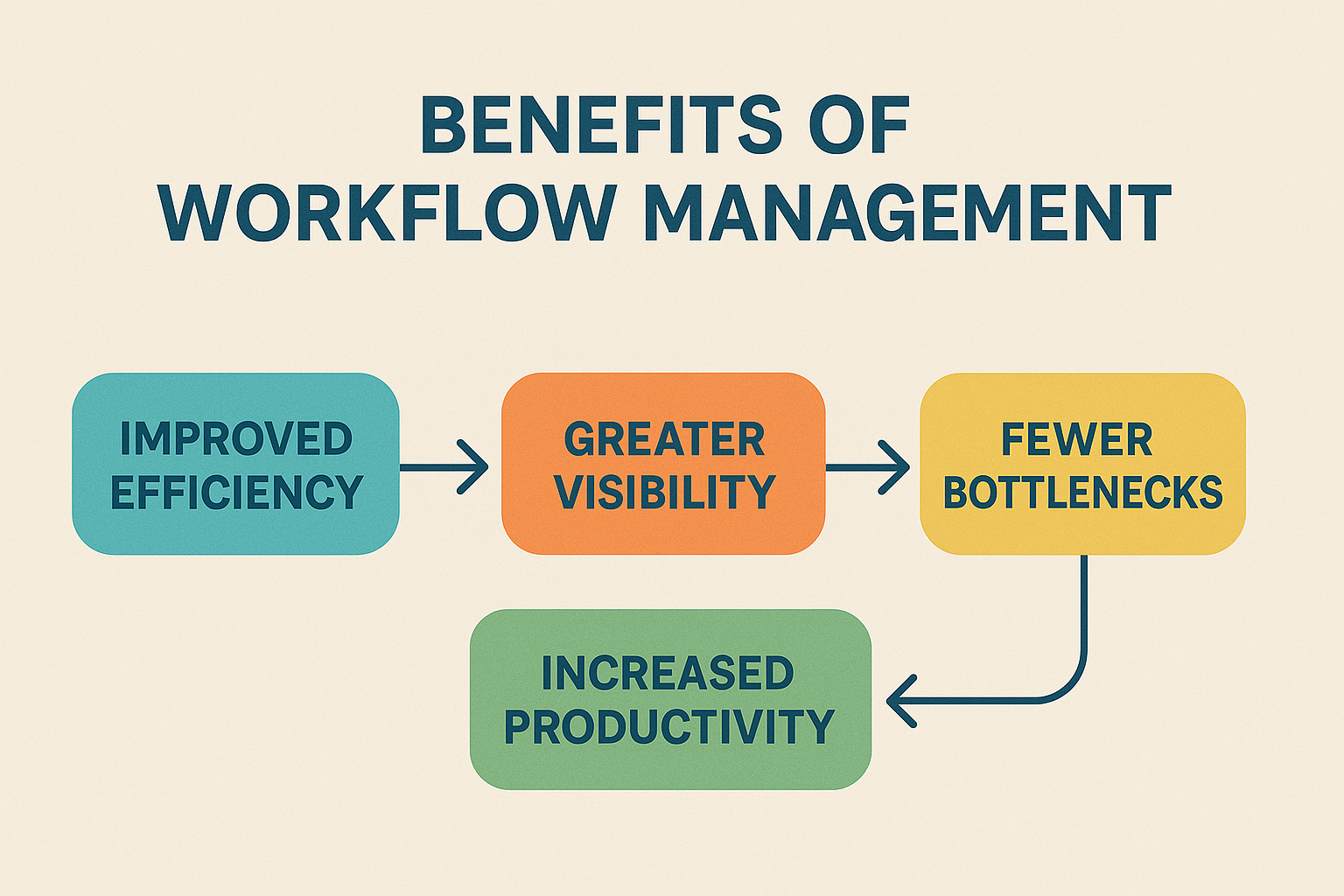How Workflow Management Changed the Game for StructuredOps
Workflow management turned a scattered, inefficient system into a streamlined machine for StructuredOps. Before implementing their new solution, teams were duplicating tasks, missing deadlines, and drowning in status updates. Now, the company hits targets faster and communicates better — with fewer tools.
We worked with StructuredOps to evaluate each department’s workflow step-by-step. From task tracking to approvals, nothing was left out. Their old way of working had become a tangled web of emails, spreadsheets, and missed handoffs. Our job was to untangle the mess.
The process began by mapping out what each team actually did daily. We identified bottlenecks that cost hours each week — approvals stuck in inboxes, redundant reporting, unclear ownership. Once we had that picture, we rebuilt a centralized system that clearly assigned every step, eliminated redundant tools, and connected tasks with outcomes.
- Task clarity improved by 67% using automated assignments and stage tracking
- Project completion rates rose 42% in the first 90 days post-implementation
- Tool switching was reduced by 60%, improving focus and accountability
When you simplify your systems, productivity follows. That’s the real power of clever workflow design.
👉 If your business is stuck in delays or repetitive tasks, explore how our workflow system services can help. See what structured process design can do.



Workflow Systems That Make Your Processes Click
A strong workflow system brings structure to chaos. StructuredOps once relied on eight different tools for daily coordination. We replaced that with a centralized platform—one login, one dashboard, one team flow.
It wasn’t just about swapping tools. We simplified the process logic. For example, approvals that used to wait for days were automated with logic rules. Instead of status meetings, they had live dashboards. Instead of Excel trackers, they had real-time boards.
Each automation saved 2–3 minutes per task — and with thousands of tasks, the savings stacked up quickly.
We also embedded triggers for accountability: if a task wasn’t marked done, a daily nudge went out. That alone improved team discipline without extra management effort.
Our Proven 3-Step Framework to Workflow Optimization
Step 1 – Task Prioritization
We start by helping teams define what matters most. Priorities are ranked, responsibilities clarified, and outcomes aligned.
Step 2 – Automation Integration
We design smart automations to eliminate repetitive actions. From task handoffs to status updates, the system handles the heavy lifting.
Step 3 – Performance Monitoring
With real-time dashboards and KPI tracking, teams stay informed and focused. No more chasing updates—everything is visible.
How We Work to Improve Workflow Management
Here’s how we apply workflow transformation across our core services:
IT Design Projects
Product Engineering
Cloud Integration
IT Consultancy
Summary Results: What Smarter Workflow Delivered
StructuredOps didn’t just get a new tool — they got a new way to work.
Here’s what we did:
Audited their existing systems, tools, and routines
Built a custom workflow blueprint for their teams
Consolidated eight tools into one cohesive platform
Added rule-based task automation for handoffs and approvals
Designed live dashboards to track project health
Trained teams to work within their optimized workflow
And here’s what happened next:
Project lead time decreased by 28%
Missed deadlines dropped by 44%
Team satisfaction rose based on internal surveys (from 6.1 to 8.5)
Less time wasted in meetings — 6 fewer hours/week per manager
New hires reached full productivity 50% faster
Our approach isn’t about doing more — it’s about making work more straightforward and faster. When your workflows work for you, everything else runs smoother.
Looking to bring this clarity to your business? Reach out to our team and let’s design your new workflow.


